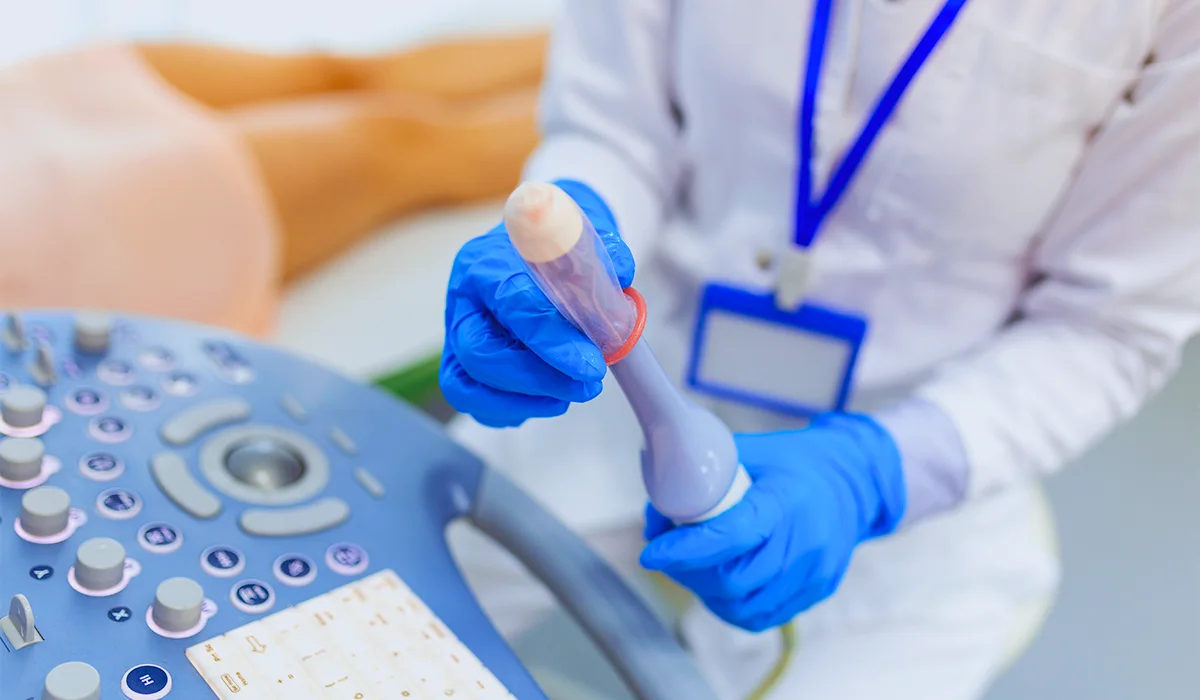No, it’s generally not recommended to get a Pap smear during your period due to potential interference with accuracy. It’s best to schedule it when not menstruating for reliable results.
Pap smears are a crucial part of women’s healthcare, as they help detect abnormal cells in the cervix that could potentially lead to cervical cancer. Menstrual cycles can sometimes interfere with scheduled appointments. So women may have wondered at some point if they can get a pap smear on their period.
Hence, in this article, we will explore the relationship between pap smears and menstrual periods. We will also look at the importance of regular cervical health screening in preventing human papillomavirus HPV and cervical cancer.
What is Human Papillomavirus HPV?
Human papillomavirus HPV is a group of more than 150 related viruses that can infect the skin and mucous membranes of the body, particularly the genital area. Human papillomavirus HPV is the most common sexually transmitted infection (STI) worldwide, and most sexually active people will contract at least one type of HPV during their lifetime.

While many HPV infections are asymptomatic and resolve on their own, some types of HPV can cause genital warts. Some can even lead to the development of certain cancers, such as cervical, anal, and oropharyngeal cancers. Human papillomavirus HPV types 16 and 18 are responsible for the majority of HPV-related cancers.
Prevention methods include vaccination, which protects against the most common high-risk HPV types. Regular cervical cancer screening through pap smears and HPV testing will also help.
Practicing safe sex with condoms and limiting the number of sexual partners can also help reduce the risk of HPV transmission.
The relationship between HPV and cervical cancer
HPV is a common sexually transmitted infection that can lead to the development of cervical cancer if left untreated. There are over 100 different types of HPV, with some strains being more likely to cause cervical cancer than others.
The two main types of HPV associated with cervical cancer are HPV-16 and HPV-18, which account for approximately 70% of all cervical cancer cases. These high-risk HPV strains can cause the cervical cells to grow abnormally, leading to precancerous lesions or, eventually, cervical cancer.
Regular pap smears can help detect these abnormal changes early on, allowing for prompt treatment and a better prognosis.
In addition to pap smears, HPV testing has become an important tool in cervical cancer prevention. HPV tests can detect the presence of high-risk HPV strains in the cervix, even before any abnormal cellular changes occur.
The combination of pap smears and HPV testing has proven to be highly effective in reducing the incidence of cervical cancer worldwide.
What is a Pap smear?
Before discovering whether you can take a pap smear on your period, let’s take a look at pap smear in detail. Pap smears are designed to detect abnormal changes in the cervical cells, which can be caused by various factors, including human papillomavirus (HPV).
The frequency of pap smears and HPV testing may vary depending on a woman’s age, medical history, and risk factors.
Generally, women should begin cervical cancer screening at the age of 21, with pap smears performed every three years until the age of 29. From age 30 to 65, women can opt for a pap smear every three years, an HPV test every five years, or a combination of both tests every five years.
Women over the age of 65 who have had regular screenings with normal results may be able to stop cervical cancer screening altogether, as long as they have no history of abnormal pap smears or cervical precancer.
Women must maintain regular cervical health screening, even if they have received the HPV vaccine. While the vaccine protects against the most common high-risk HPV strains, it does not provide complete protection against all types of HPV that can cause cervical cancer. Now that we have learned a bit about both HPV and pap smear.
pap smear on your period
So, can you take a pap smear on your period? What do you think? Let’s get into it. Getting a pap smear on your period is generally not recommended, as menstrual blood can interfere with the accuracy of the test results.
The presence of blood can make it difficult for the healthcare provider to obtain a clear sample of cervical cells. This may lead to an inconclusive or false-negative result. For this reason, it is best to schedule your pap smear appointment when you are not experiencing menstrual bleeding.
If you find yourself in a situation where you need to get a pap smear on your period, it is essential to inform your healthcare provider beforehand. They may advise you to reschedule your appointment.
In some cases, they may proceed with the test if the bleeding is light and not expected to affect the results significantly. However, it is always better to err on the side of caution and plan your pap smear around your menstrual cycle. It will help you to ensure the most accurate results.
Conclusion
In conclusion, getting a pap smear on your period is not ideal, as menstrual blood can interfere with the accuracy of the test results. Women should aim to schedule their pap smear appointments when they are not experiencing menstrual bleeding. This will ensure the most reliable outcomes.
Regular pap smears, along with HPV testing, play a vital role in detecting abnormal cervical changes caused by human papillomavirus. Thus it plays a pretty important role in preventing the development of cervical cancer.
By adhering to the recommended cervical cancer screening guidelines and maintaining open communication with healthcare providers, women can take proactive steps toward protecting their reproductive health. Remember, early detection is key in the fight against cervical cancer, and pap smears remain an essential tool in this battle. So, when was your last pap smear, and have you scheduled your next appointment?

